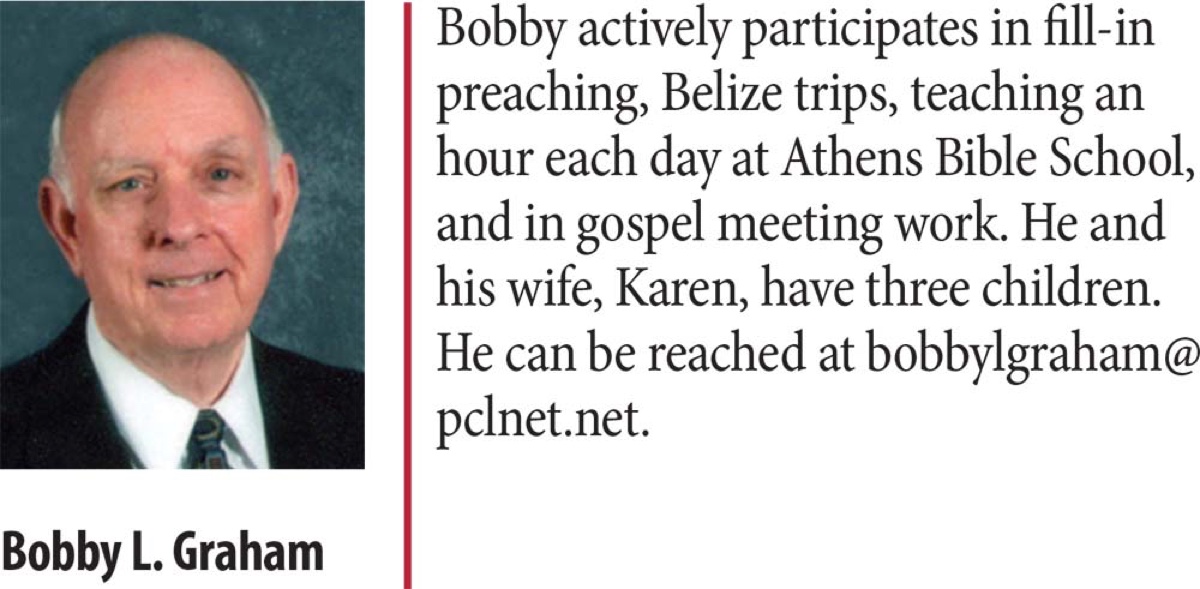
by Bobby L. Graham
During last year’s pandemic, our congregation met in the parking lot. Is this a scriptural arrangement for worship?
I certainly hope it is scriptural, because during 2020, I not only met in such an arrangement, but also preached there several times. Of course, the Lord has never asked me about such matters, nor does He need to do so. The Lord knows what He wants, and reveals His mind in the Bible. We need to ask Hm about it. Let’s see “what the will of the Lord is” (Eph. 5:17).
He desires that His people gather themselves together to remember Christ, to worship Him, and to edify each other (Acts 20:7; 1 Cor. 14:23; 16:1-2; Eph. 5:19; Col. 3:16; Heb. 10:25). A common purpose is essential for this to happen. Meeting together has certain essentials like conformity to the New Testament pattern for worship (1 Cor. 11:22-23). In contrast, time and place details are expedients which facilitate our meeting together as a church, but have no bearing on whether the assembling is scriptural.
As a matter of general option, a congregation may gather in a basement of a private dwelling, on the top floor of a luxury high rise, in the woods, in a rented hall, or in a parking lot. Does each place mentioned have advantages and disadvantages? Certainly. Some of them make each choice either more or less desirable. Being undesirable does not, however, make it an unscriptural place to assemble for worship.
One brother reportedly said such a meeting in a parking lot was not conducive to eating the Lord’s Supper together (It appears his own judgment was being expressed). Someone added that those gathered could not worship “in one accord” (I wonder how he could detect their purpose of heart). I am unsure what it would take to satisfy all brethren on this matter, but I have concluded it is easy for people to become cranky, especially when the Bible says nothing about the particular scruple one holds.
In the rather large Jerusalem church in Acts 2, Luke notes that the 3,000 were “in one accord” daily as they met in the temple (Acts 2:46). Did they meet in the entire temple complex, or did they somehow squeeze into some of the adjoining rooms? No man today knows the answer! Some forty years ago, some brethren advocated the practice of an entire city church meeting at different gatherings, basing it on the unjustified speculation that the Jerusalem church did so. Wherever they met, I am pretty sure they all could not see all the rest. If having all others in sight is essential, or if all must occupy the same room, the person insisting on such has probably created a demand that would be impossible to meet.
Is it unscriptural for parents to sit in a nursery or take a child outside the building during the Lord’s supper? Do they thereby disqualify themselves to eat and drink in remembrance of Christ? Does their temporary absence also disqualify the rest from eating, because they constitute less than the full number? Be careful where you tread and how far you go in pursuing such scruples (1 Cor. 4:6); you just might create some traditions like those of the Pharisees (Mark 7:7-8)! I have heard that some brethren have a so-called scriptural objection to a parking-lot meeting, but I lack much information about why they think it wrong.



